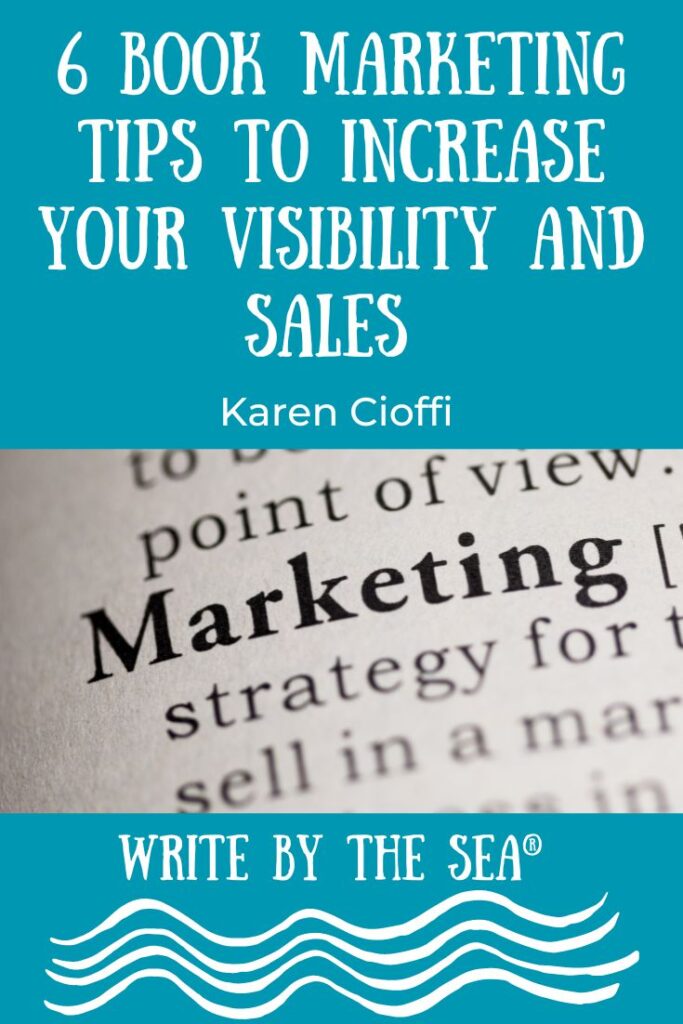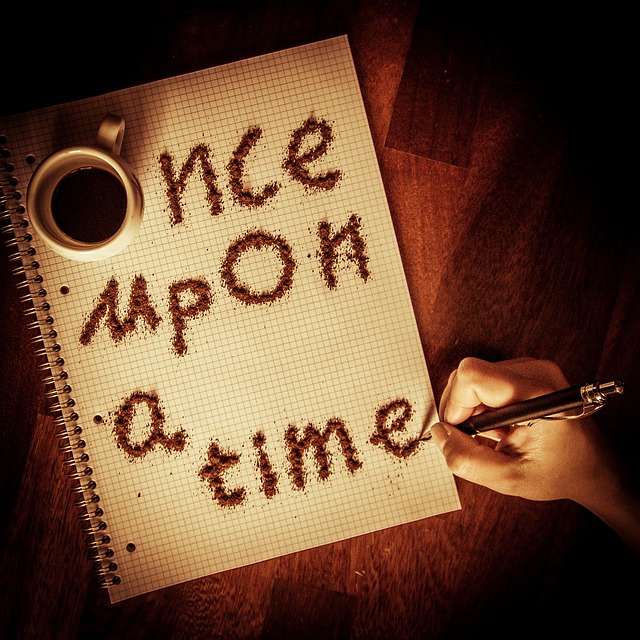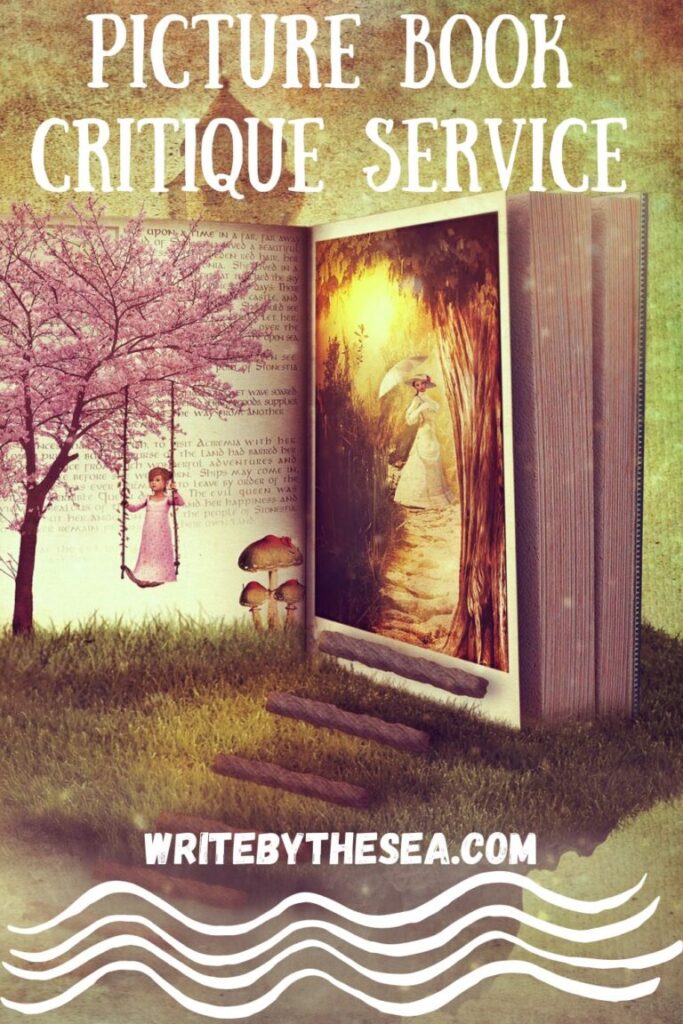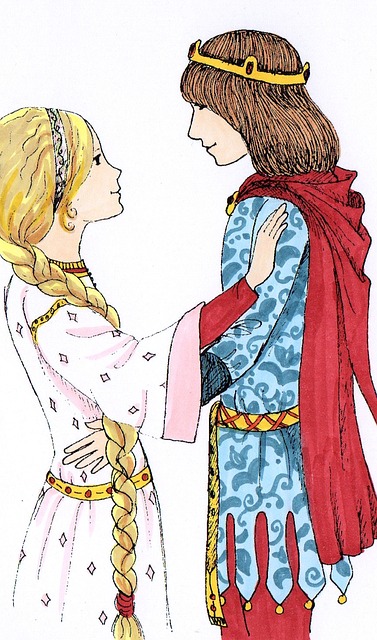Is your author website on the mark?
As we get caught up in our writing careers sometimes it’s easy to forget about.
That’s a no-no!
It’s important to present a focused brand and site.
Okay, so what are three author website must-haves and six tips?
Note: While this article focuses on children’s writing, it’s pertinent to any writing niche.

Three Must-Haves
1. Create a website using your own name.
As a writer, whether you’re co-writing with someone or not, you need your own website.
And, your main (hub) site should have your name in it.
This will be your central site linking off to your other related sites.
As an example, my children’s writing site is: Writing for Children with Karen Cioffi.
Now, with this title I have two essential elements covered: (1) my name, (2) the site’s keyword.
The visitor and search engines can quickly determine what the site is about.
This is super important for website ranking and authority.
While there are a number of other areas that need your keyword for website optimization, the title is one of the top ones.
Note: In this case, when I say “title,” I mean the URL also.
Your URL is an optimization tool.
It gives the search engines more information the site.
So, using my site above, the URL is http://karencioffiwritingforchildren.com
My site’s title and its URL both have the always-important keywords in them. This is focus.
2. Include the niche you write in as part of your URL and website title.
This was touched on in number one, above.
If you write in only one niche, say children’s historical fantasy, you should have that keyword in the title of your site, as well as in the domain name.
Then you can have one site to list all your books.
Just be sure to create separate pages for each book.
Tip: It’s really a much better idea to create a separate website for each book, in addition to your central author site.
It allows you to create multiple must-have pages for each book. See number 4 in the tips below.
HOT TIP: If your title is too long, it’s better to use the niche keyword, say ‘children’s historical fantasy,’ and omit your name. Unless you’re Eric Carle, or Kevin Henkes, or James Patterson, you’re name has no search engine value.
3. If you are branding yourself as a children’s writer, keep your site specific to writing for children.
I originally had a problem with this.
I ventured into a number of writing arenas including content writing and online marketing.
Instead of keeping those areas separate, I brought them into my children’s writing site.
So, why is this a mistake?
Well, because of dilution of expertise.
If you’re branding yourself as a children’s writer, the focus of your site must be children’s writing.
If you promote yourself as ‘doing this, that, and the other thing,’ you’ll become known as the ‘jack of all trades and master of none,’ – dilution of expertise.
TIP: If you’re also involved in other writing arenas as I am, create separate sites for promoting yourself as an expert in those areas. You wouldn’t want to have your steamy romance books listed on your children’s writing site.
Remember, whatever your site’s niche is, keep it focused on that niche.
6 TIPS for a Better Website/Blog
1. Always have an about page on each of your sites, include a short bio and photo.
2. Always have an opt-in box (for your mailing list) readily visible on your sites.
3. Always make sure your visitors can easily find how to contact you – a contact page is a good idea.
4. Have a page for reviews of your books, excerpts of your books, testimonials, illustrations, awards, etc.
You can also link to interviews others have done about you and your books. (This is where a separate site for each book comes in handy.)
5. Offer a resources and/or tools page.
The visitor will appreciate this and hopefully share your site with others and link back to it.
6. Get a book trailer or video on your site. Mix it up. People love visuals.
Using these tips will help you create a focused and reader/search engine optimized children’s writing website.
Knowing what to do and ‘not do’ with your author website is an essential aspect of online marketing.
About Karen Cioffi
 Karen Cioffi is an award-winning author, children’s ghostwriter, and founder and editor-in-chief of Writers on the Move.
Karen Cioffi is an award-winning author, children’s ghostwriter, and founder and editor-in-chief of Writers on the Move.
For more children’s writing tips and writing help, stop by Writing for Children with Karen Cioffi.
And don’t forget to join our mailing list.
Just fill in your name and email address, below:
Click Here for more about money and writing.






